Warning: This story contains spoilers from Pose season 2 episode 8.
There was a lot going on in tonight's Pose episode. There was the opening sex scene, a rare -- and one of the first since the important groundbreaking work of Noah's Arc in 2005 -- sighting of two gay, Black men actually having sex on television as opposed to having it inferred like Hollywood likes to do so often. In it, Pray Tell and Ricky Wintour succumb to their passions which seem to have only recently begun to even bubble to the surface following Ricky being diagnosed with HIV.
Two gay, dark-skinned, Black, HIV-positive, sexually versatile men, in an intergenerational coupling at that! It was a lot. And all before the opening credits. But there was also a pretty high-temper blow up between Damon Evangelista and the rest of the house, an equally bristly showdown outside of a ball between Blanca Evangelista and Pray Tell, and at the end, a lonely Blanca, at home as her children have all flown from the nest -- Damon is off to go touring, Angel is kicked out (or does she leave) for drugs, and Lil Papi goes with her.
It was a jam-packed episode and all a part of Steven Canals' directorial debut on television. "[When we started Pose] I thought directing was a passion that I had put to bed," Canals tells Out. Canals is the creator of the show and has up until now functioned as a writer. "But working on the pilot with Ryan [Murphy], the bug bit me and fortunately I was in an environment where Ryan supported that." And now, having delved into that passion once more, he hopes to continue directing in the future.
Here, we talked to Canals about that important sex scene -- which actually wasn't even a part of the initial script -- the importance of shouting out Malcolm McLaren's "Deep in Vogue," and the ongoing conversation about Pose recreating actual ACT UP events with a cast of mostly Black and brown queer and trans folks when that wasn't the reality of what happened.
So I want to talk about a few of the scenes and as I feel like I'd be remiss if I didn't ask about this, let's start with the beginning of the episode: that sex scene. What were the important aspects of that scene for you?
It's actually interesting, if you saw the actual script, what was written is Pray Tell sort of is resistant to Ricky's advances. He essentially gives into it and then as they begin to become passionate, we cut to the title sequence. And that's obviously not what I gave you, as an audience.
My approach was -- and my approach has always been when it comes to this show, whether it's writing and now directing -- what have we not seen before? And more specifically in locating myself as a queer person of color, what did I need? What did I need to see when I was coming up as a young boy?
Thinking about this scene between between Pray Tell and Ricky, I couldn't not think about all of the young boys, whether Black or brown or any shade or any race or ethnicity, who would be coming in to watch our show, who would finally feel seen and who would feel like their experience and their way of loving has value. And so that really was the impetus to say, "Yeah, I want to see these two gay Black men make love." And you know, just the revolutionary act of having two gay, Black actors playing gay Black men who also happen to be HIV-positive, in a loving relationship. To me that just felt so important.
Beyond that, the relationship between Pray Tell and Ricky and what we wanted to do is deconstruct the myths around intergenerational gay relationships. Because I think more often than not, there's an assumption that older gay men pursue younger gay men and that that doesn't happen in the inverse. And obviously it isn't true. So I think all of that was embedded in wanting to show their love, and throughout that episode, just this narrative between the two of them.
Another part of that narrative has been the idea that the older person should "know better," even if they are the one that's being pursued. I feel like you got at that in the back and forth with Blanca and Pray Tell.
What has always been important for thePose writers' room, is to craft narrative around characters that have agency. And obviously, in all of our characters having agency, it then complicates the situation even more. Because the reality is, if we're looking at that argument between Pray Tell and Blanca out on the street, outside of the ball, neither one of them is wrong. And I think that that was what was really exciting for me, in terms of not only the crafting of that scene, but certainly the directing of it. I love any moment where two characters are right. And the truth is that they both are, you know, and that really stems out of having characters, again, that have agency and can make choices for themselves.
Ricky is not a victim in this. Ricky was not taken advantage of, you know? Ricky was very interested in Pray Tell and it wasn't just that he pursued him, you know, because I think some people will make the assumption like he chased Pray Tell. And it's like, no, I think that was what was important in that scene, for Pray Tell to acknowledge like, "Yeah, he pursued me and I allowed that to happen. Like, I wanted that to happen, I am deserving of love. We all are." But also then having Blanca articulate for trans women and specifically trans women of color, who are also positive, that experience is different for you than it is for me. And so it was our needing to acknowledge that as well.
In the show, you also mentioned Malcolm McLaren and Damon going to go on tour with him. Like many other storylines in this show, I'm assuming that this is inspired by the real life sequence of Willi Ninja working with Malcolm and being in the "Deep In Vogue" video. Can you talk about the importance of including Malcolm in this narrative, as I think that he's often forgotten?
One of the things that we have an opportunity to do through this show is to not only remind our audience, but also maybe tell them for the first time, and highlight important individuals who may or may not have been connected to ballroom, but are clearly people who are really important to LGBTQ people, more specifically LGBTQ people of color.
It would feel off to not include Malcolm McLaren who, as you noted, has, just like ballroom sort of, been overlooked historically or been forgotten. The other thing is that our show, while it is fictional, is obviously in conversation with real life. And so again, I think there are ways to honor and to acknowledge real people in our show in ways that are subtle. And so that was one of the ways for us to do that with Malcolm and specifically with "Deep In Vogue" and his relationship with Willi.
Speaking of these sort of relationships, of informing people sometimes for the first time and being in relationship with essentially this real living history, there has also been a conversation online about using historical events -- specifically as it pertains to ACT UP -- and writing the characters of Pose, which are Black and brown, trans and queer people, into those narratives in ways that are not always reflective of how those things actually happened.
I think that our feeling is that we are trying to hold two truths on our show, which is A.) that this is a piece of fiction and then B.) that many of the events and experiences that our fictional characters are having, are real and actually did happen to folks out in the world. And in some cases, [they] happened to some of our audience. For us, it's all about honoring both.
One of the things that Ryan has said in the writer's room that I always appreciate is that, we are, as a show, trying to craft a narrative and portray the world that we want to live in. Because at its core in so many ways, Pose is really an aspirational show. And so, while I certainly want to acknowledge that the relationship that an organization, like ACT UP for example, had with Black and brown folks and their contribution is a discourse that we obviously can engage in and deconstruct.
The reality is that we were there, we've always been there. And Black and brown people specifically weren't involved in events like the Condom Caper which we highlight in episode seven buthe reality is, we as a people and our contributions to the LGBTQ+ movement have been erased. In many ways, what Pose is trying to do is to highlight and show that we are people who do have agency and that we have power and we can use our voice, and have historically, even if we haven't necessarily always been acknowledged in that way.
Black and brown queer and trans people certainly have a history of activism and using their voice! Thinking about that and the fact that this show is specifically about ballroom, will we see any scenes that are rooted in activism that was actually specific to the ballroom community? I know the community has a very long and involved history of activism.
That, I think, will be a conversation that will likely be happening once we're discussing narrative for season three. Moving forward, that is something, narratively, that we certainly will likely be leaning into.
RELATED | 'Pose's Dominique Jackson Is Featured in New Valentino Social Campaign
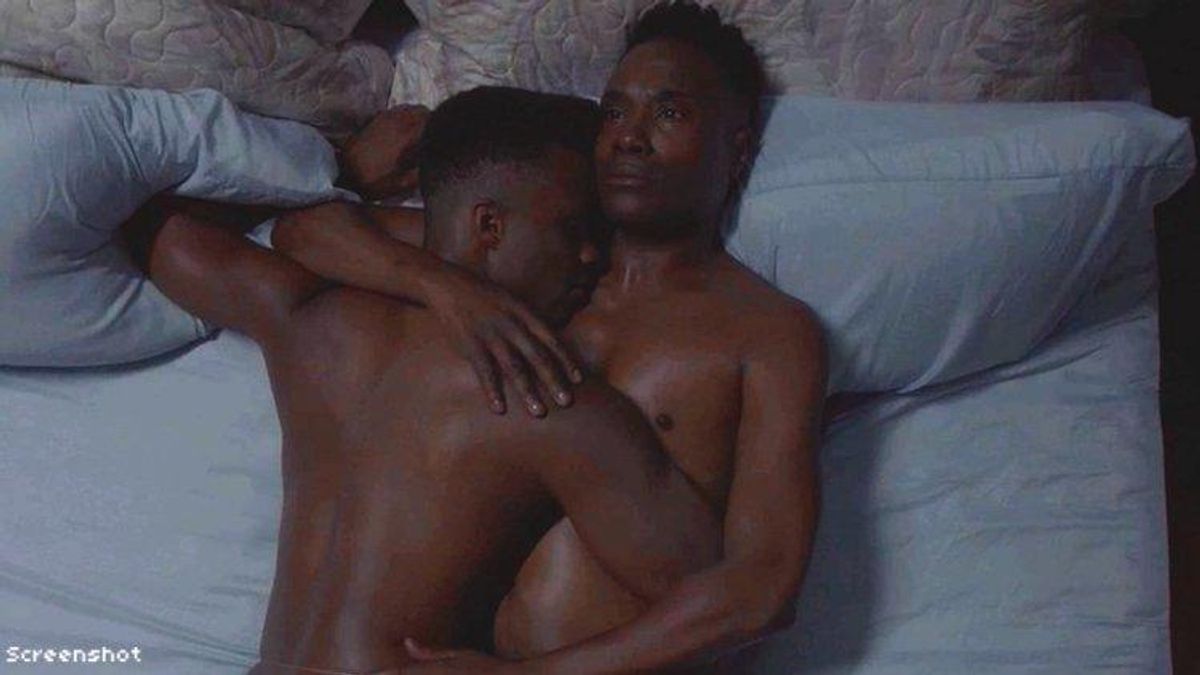



























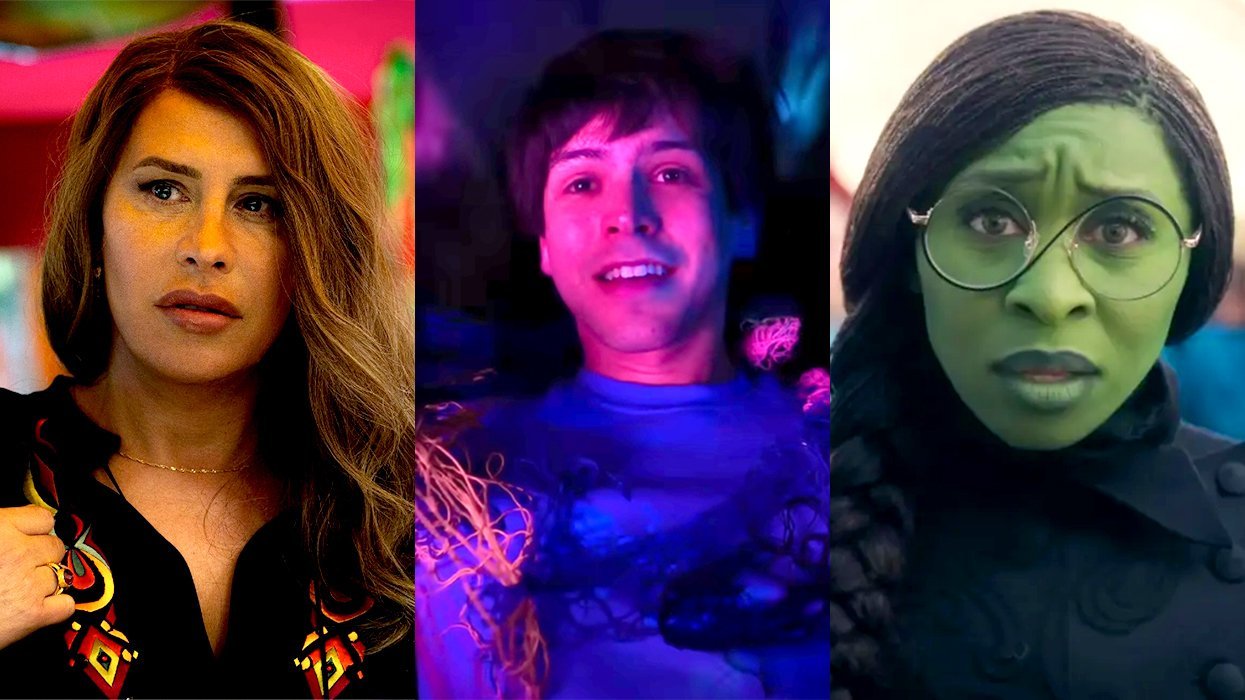





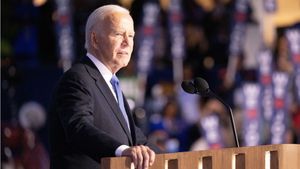

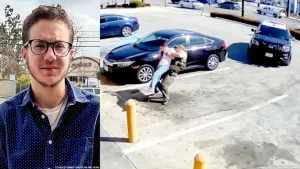















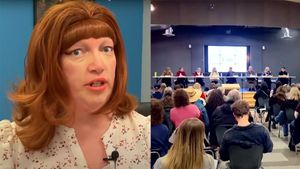
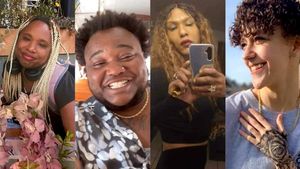



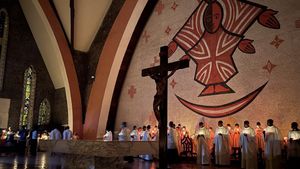













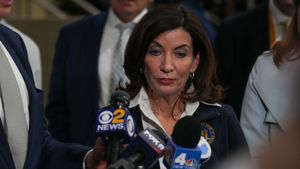
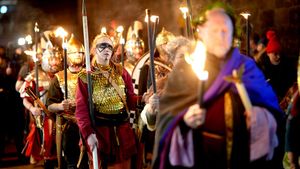
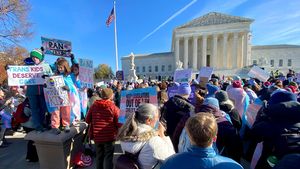







Sexy MAGA: Viral post saying Republicans 'have two daddies now' gets a rise from the right